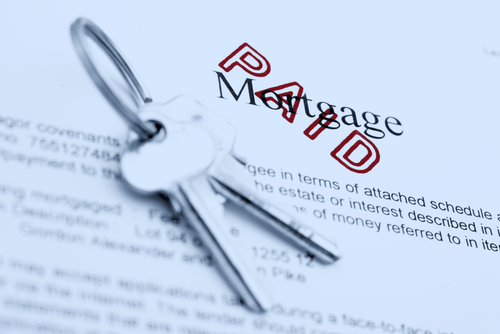Regardless of whether retirement is 10, 20 or 30 years off in the future, the earlier you start planning, the better off you’ll be financially. Planning can include enrolling in an employer’s 401(k) or opening an individual retirement account. And with regard to expenses, you may set a goal of paying off your mortgage before retiring.
Some may argue that rushing to pay off a mortgage before retirement isn’t the best idea. Keeping a mortgage means the ability to write off mortgage interest, which can reduce your taxable income now and once you retire. Rather than pay off a home, some also argue that it is better to contribute extra funds to a retirement account and build a bigger nest egg.
Only you can decide the best approach for your money. However, paying off your mortgage doesn’t interfere with retirement planning, eliminating this expense could be the smartest move to secure your future.
The truth of the matter is, your income is likely to decrease after you retire. If you bring a mortgage into retirement, the expense could be too much for your income, and you may have to downsize or sell the house to make ends meet.
If you want to remain in your house after retiring, make choices that’ll result in the least amount of expenses. Here are three ways to be mortgage-free before retiring.
-
Get a biweekly mortgage
With a biweekly mortgage, you pay one half of your mortgage payment every two weeks. This results in one extra mortgage payment a year. Although a simple move, this payment schedule reduces the amount of interest you pay and can decrease your mortgage term by up to seven years.
If you don’t want to commit to a biweekly schedule, choose a regular schedule and make extra principal payments. Additionally, if you purchase a house later in life and you don’t want a 30-year mortgage, review your budget to see whether you can afford a 15-year or a 20-year mortgage. You’ll not only pay off the mortgage balance sooner, a shorter terms helps you build equity faster.
-
Refinance your mortgage
If you’re adamant about paying off your mortgage before retiring, another option is refinancing the mortgage to take advantage of a lower interest rate and a lower monthly payment. But instead of refinancing for another 30 years, select a term that’s closest to the remaining term on the mortgage. So if you’re already 10 years into paying off the loan, refinance the mortgage for only 20 years to maintain the same pay off schedule. If you qualify for a lower interest rate, your mortgage payment will decrease. Rather than make the smaller payment, continue to pay the original mortgage amount, but apply extra funds to the principal only.
-
Don’t borrow from your equity
If you have substantial home equity, it can be tempting to get a second mortgage or a cash-out refinance. Just know that borrowing against your home’s equity increases your mortgage debt and reduces your home equity. The more second mortgages you receive, the longer it’ll take to pay off your house, and you’re more likely to carry mortgage debt into retirement.








